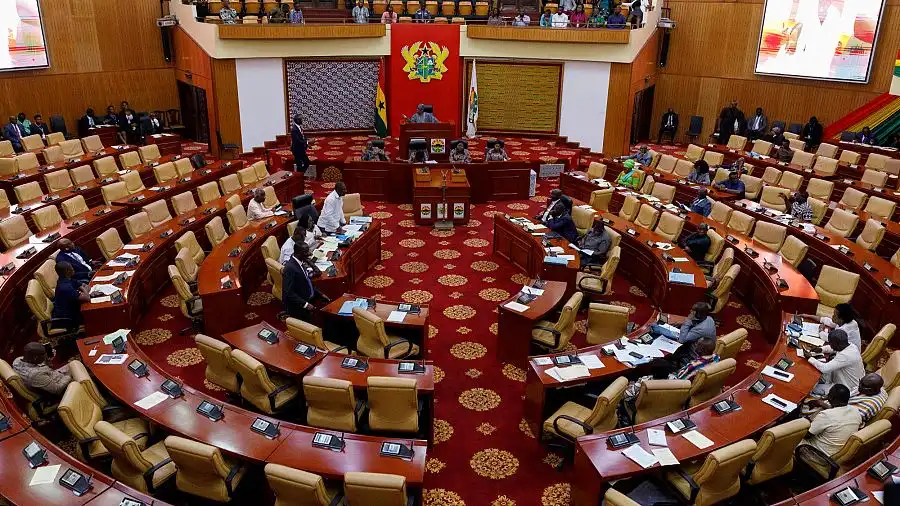Ghana’s lawmakers approved a $2.8 billion debt restructuring deal on June 24, 2025, to address the nation’s worst economic crisis in decades, offering a lifeline to stabilize its finances.
The West African country, a major producer of cocoa and gold, defaulted on most of its $30 billion external debt in December 2022, crippled by the COVID-19 pandemic, the Ukraine war, and rising global interest rates.
The agreement, signed with 25 creditor nations including China and France in January 2025, aims to reduce Ghana’s debt-to-GDP ratio to 55% by 2026 and its debt-service-to-revenue ratio to below 18% by 2028.
Finance Minister Cassiel Ato Forson announced that negotiations with private creditors, holding $2.7 billion of the debt, are ongoing to complete the restructuring.
“This deal is a critical step toward sustainable economic growth,” Forson said, emphasizing its potential to ease fiscal pressures and boost job creation.
The move aligns with Ghana’s pursuit of a $3 billion IMF bailout secured in 2023, which has supported reforms to curb inflation and stabilize the cedi, though challenges like high unemployment (14.7% in 2024) persist.
A Path to Recovery
Ghana’s economy, heavily reliant on cocoa and gold exports, faced severe strain from global disruptions.
The pandemic disrupted supply chains, while the Ukraine conflict spiked energy and food prices, pushing inflation to 54% in 2022.
Rising U.S. interest rates increased borrowing costs, exacerbating Ghana’s debt burden.
The restructuring deal, part of the G20’s Common Framework, offers debt relief through extended repayment terms and reduced interest, freeing up funds for infrastructure and social programs.
This effort complements regional economic initiatives, such as Nigeria’s $1 billion agriculture and energy deal with Brazil, aimed at scaling farming and reducing import reliance.
However, Ghana’s urban housing costs, ranking ninth in Africa’s most expensive rent markets (Rent Index: 10.8), signal ongoing pressures on citizens, as noted in recent Numbeo data.
Unlike Nigeria’s struggle with UAE visa restrictions, which hinder trade, Ghana’s debt deal strengthens its global financial standing, potentially attracting investment.
Challenges Ahead
Despite progress, private creditor talks remain a hurdle, with $2.7 billion unresolved.
The government’s plan to lower debt servicing relies on economic growth, projected at 3.7% in 2025, but risks like global commodity price volatility and domestic power outages, similar to Nigeria’s Port Harcourt refinery delays, could derail recovery.
The IMF bailout has reduced inflation to 22% in 2024, but public frustration over living costs persists, echoing Nigeria’s governance critiques.
A Turning Point?
Ghana’s debt restructuring marks a pivotal moment for its 32 million citizens. Can the government leverage this deal to restore economic stability and address urban pressures, or will global and domestic challenges persist?
As the nation navigates this path, its success could inspire other African economies facing similar crises.
Nigeria and Brazil Seal $1 Billion Deal to Transform Agriculture























